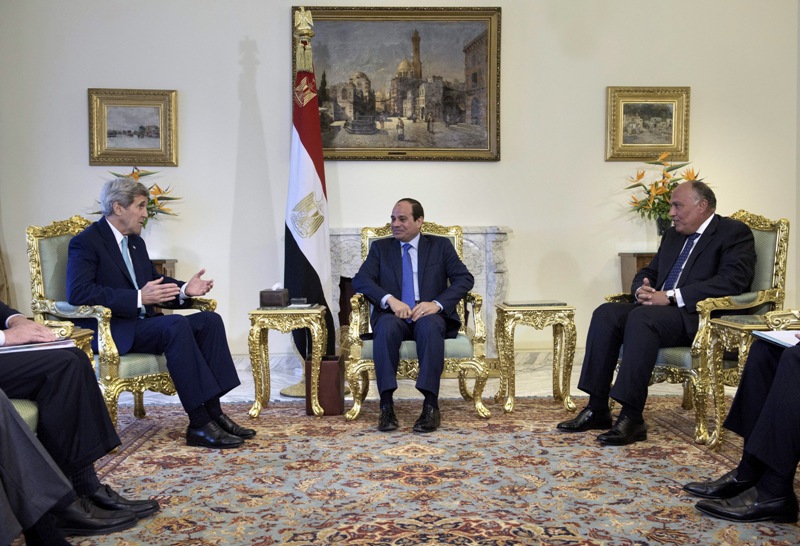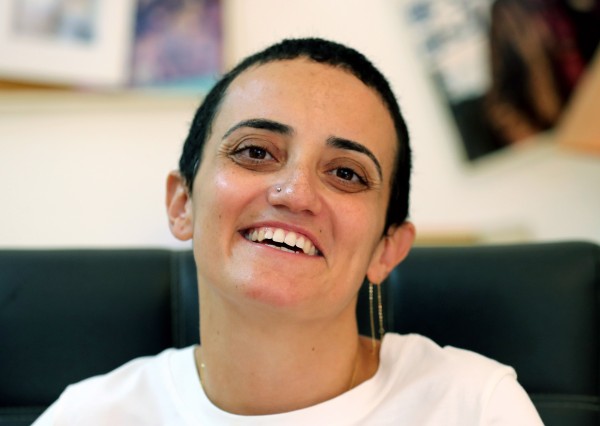Egypt should repeal new anti-terrorism legislation punishing journalists whose coverage of militant attacks does not toe the government line, the International Press Institute (IPI) said today as it released a broad list of recommendations intended to reverse the continuing deterioration of press freedom in the country.
The recommendations, aimed both at Egypt’s government and at international organisations seeking to reverse the negative tide, are the result of a series of roundtable discussions held in Vienna, Doha and Geneva in 2014 that brought together journalists, academics, members of civil society and others to address challenges facing press freedom and media independence in Egypt.
“The current government, which has led a crackdown on opposition media outlets and imprisoned dozens of journalists on often-dubious accusations, has now granted itself a monopoly on information – a development wholly inconsistent with democracy in general and with guarantees set forth in Egypt’s Constitution,” IPI Director of Advocacy and Communications Steven M. Ellis said.
“The subject of militants’ attacks, and whether the government is giving people accurate information about them, is unquestionably of public interest. Rather than misusing the very real need to combat terrorism as a pretext to squelch questions about government conduct, the country should take concrete steps to shore up the rule of law and protect human rights.
“We urge Egypt’s leaders to heed these recommendations and the country’s supporters in the international community to press them to do so.”
Under the anti-terrorism package approved on Sunday by President Abdel Fattah al-Sisi, journalists whose reporting on militant attacks contradicts official government reports can face fines of approximately €23,100 to €57,800 and a ban on working for up to a year. A prior version threatened journalists with a two-year prison sentence, but that was dropped amid widespread criticism.
The Associated Press (AP) reported that the new legislation also defines terrorism broadly as any act that disturbs public order with force, and provides lengthy prison terms for promoting or encouraging any “terrorist offence”, among other activities.
Participants in the IPI roundtables, which were organised with support from the Al Jazeera Media Network, singled out such broad definitions for criticism. The recommendations released today call on Egypt both to tighten the definitions for “terrorism” or offering “support for terrorism”, and to repeal the new prohibition on reporting information that does not conform to government reports, among other steps.
The full text of the recommendations for international organisations and for the government appears below.
Egypt’s media enjoyed some improvements in press freedom following the 2011 revolution that ended then-President Hosni Mubarak’s 30-year rule, but those gains have mostly been rolled back in the two years since the military deposed Muslim Brotherhood-affiliated President Mohamed Morsi.
According to the New York-based Committee to Protect Journalists (CPJ), as of Aug. 12 some 22 journalists are currently imprisoned in Egypt in connection with their work. They include journalists detained in connection with the “Rabaa Operation Room” case, named in reference to a camp erected in Cairo’s Rabaa al-Adawiya Square protesting Morsi’s removal, which government forces cleared in a bloody August 2013 operation. In April of this year, a court sentenced one journalist in that case to death and another 13 journalists to life in prison.
Those detained also include photojournalist Mahmoud Abou Zeid, aka Shawkan, who has been held since August 2013 when he was arrested while covering the Rabaa al-Adawiya Square protests. Abou Zeid has alleged abuse at the hands of his jailers and is described as being in “failing health”.
The detained do not currently include former Al Jazeera English Cairo Bureau Chief Mohamed Fahmy, Al Jazeera journalist Peter Greste or Al Jazeera producer Baher Mohamed, accused of terrorism-related charges in a case that has drawn international condemnation. The three were granted a retrial in January and released the following month, but are now awaiting a long-delayed verdict, which supporters now hope will come on Aug. 29. Greste was deported to Australia, but Fahmy and Mohamed remain in Egypt and could be returned to prison depending on the verdict.
Read and download the full recommendations.



